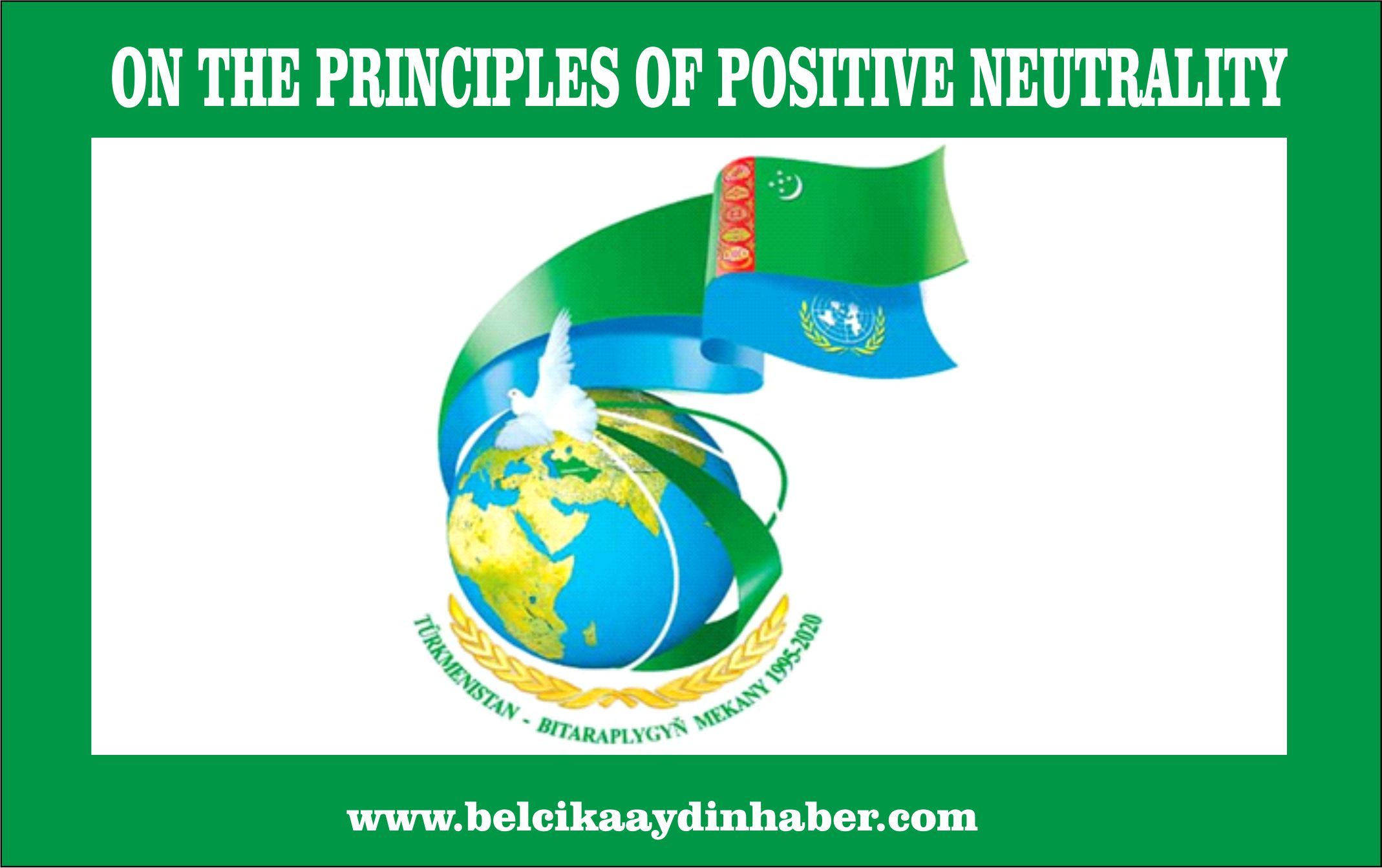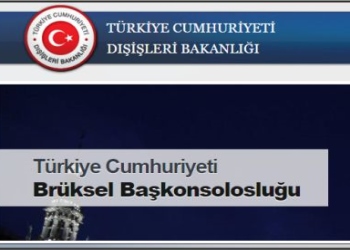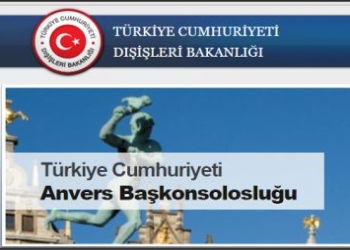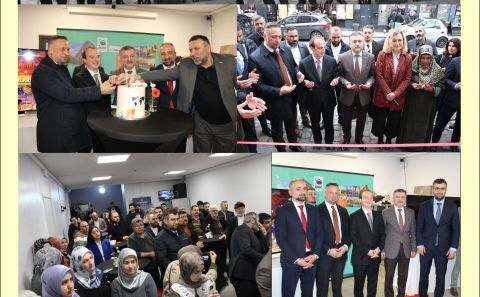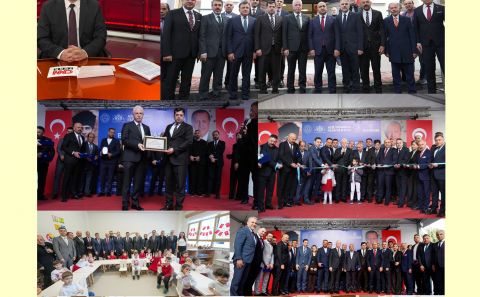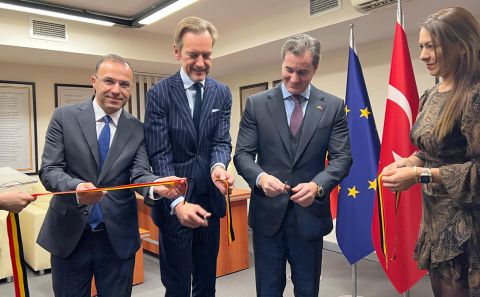Consistently implementing its constructive foreign policy course based on the principles of neutrality, Turkmenistan takes an active position in promoting water diplomacy and makes a worthy contribution to the development of balanced decisions related to water resources with its specific international initiatives.
~~ Consistently implementing its constructive foreign policy course based on the principles of neutrality, Turkmenistan takes an active position in promoting water diplomacy and makes a worthy contribution to the development of balanced decisions related to water resources with its specific international initiatives.
On January 14, 2020, at the international conference entitled “Turkmenistan and International Organisations: Cooperation for Peace and Development”, President Gurbanguly Berdimuhamedov emphasised that “ecology and the environment should not become hostages of commercial benefits, no matter how attractive they may seem.” Further, the head of state noted that “ensuring the sustainable development of our country and improving the quality of life of the population are directly related to solving environmental problems in the region.”
Factor of Sustainable Development
The rational use of water resources is an important aspect of the foreign and domestic policies of Turkmenistan. This is closely related to the preservation of ecological wellbeing and environment protection, and also remains an integral factor in global sustainable development, which is reflected in the 2030 Agenda. Our country is a party to all the fundamental international conventions in this area and makes a worthy contribution to their practical implementation.
Turkmenistan adheres to the political and diplomatic form of multilateral cooperation, which opens up opportunities for a systemic dialogue aimed at addressing all the problems associated with the restoration of water sources and their rational and economical consumption. At the same time, in his speeches at major international forums, President Gurbanguly Berdimuhamedov repeatedly states the need to consolidate the efforts of all states and international organisations to resolve water and environmental issues.
On the initiative of the national leader, voiced at the Seventh World Water Forum, held in 2015 in the South Korean city of Daegu, a new direction of diplomatic activities, water diplomacy, was created. Its main goal is to establish a broad international dialogue. As President Gurbanguly Berdimuhamedov notes, “Local interests and benefits should give way to understanding truly global goals and priorities and developing a unified long-term water strategy.” This is an important basic constant of water diplomacy in Turkmenistan. The head of state sees access to water as a fundamental human right. This approach is based on the universal right to use water resources and responsibility for their effective management. Ensuring the observance of the right of access to water should be a duty for all states of the world, the national leader is convinced.
Based on these principles, our country with full responsibility follows its policy in the water segment of sustainable development both at the national and international levels. Actively promoting a constructive international dialogue on the restoration and rational and economical consumption of water resources to achieve socioeconomic progress and environmental goals, Turkmenistan demonstrates its determination to realise its creative potential for the benefit of human civilisation and takes a responsible approach to solving water problems for the sake of the present and future generations.
Water Resources – Common Property of the Region
One of the most pressing environmental problems is the Aral crisis. Taking into account the scale of its consequences, the heads of five states, Kazakhstan, Kyrgyzstan, Tajikistan, Turkmenistan and Uzbekistan, established the International Fund for Saving the Aral Sea (IFAS) in 1993 with the aim of improving the socioeconomic and environmental situation in the Aral Sea basin.
As you know, Turkmenistan presided over IFAS from 2017 to 2019. Under the leadership of President Gurbanguly Berdimuhamedov, the Conception of the Chairmanship of Turkmenistan was developed, it included the main areas of activities focused on the implementation of the tasks facing the IFAS. Considering the International Fund for Saving the Aral Sea as a platform for interstate cooperation to overcome the environmental, socioeconomic and humanitarian consequences of the Aral Sea tragedy, Turkmenistan, as chairman, took concrete measures to strengthen cooperation among the participating countries and IFAS partnership with international organisations.
This concerns the development of a new Programme of Action to assist the countries of the Aral Sea Basin – ASBP-4, the Regional Environmental Action Plan (EAP) as a unified environmental programme for Central Asian countries and the Central Asian Water Strategy and the Framework Convention on Environmental Protection for Sustainable Development in Central Asia (Ashgabat Convention).
A historically important event for the countries of Central Asia and the International Fund for Saving the Aral Sea is rightfully considered to be the holding of a meeting of the Council of Heads of the Founding States of the IFAS, chaired by President Gurbanguly Berdimuhamedov, after an almost 10-year break. As a result, a Joint Communique was adopted, where the heads of state of Central Asia reaffirmed the need to solve the Aral problem by joint efforts.
As you know, in accordance with the Resolution of the UN General Assembly, IFAS was granted an observer status in the UN. Noting that the preservation of the Aral Sea could no longer be regarded as an internal, regional problem, the President of Turkmenistan stressed its successful solution required the support of the international community, a new accented, comprehensive international approach and active and systematic participation in this work. In this regard, on the initiative of the Turkmen leader, the UN General Assembly adopted Resolutions on Cooperation between the United Nations and the International Fund for Saving the Aral Sea in 2018 and 2019. The documents are the legal basis for interaction between the UN and IFAS in a systematic manner.
As part of the presidency chairmanship of Turkmenistan in IFAS, in December 2019, the Ministry of Foreign Affairs of Turkmenistan held multilateral consultations on the development of a UN Special Programme for the countries of the Aral Sea region, during which it was emphasised that the experience of the International Fund for Saving the Aral Sea could be useful for solving environmental problems in other regions of the planet.
IFAS Experience to Use in International Practice
The Aral Sea is not the only one on the planet that is on the verge of extinction. Over the past decades, the environmental problems of the seas and lakes are topical for entire humanity. For example, Lake Chad on the African continent, the Dead Sea, located between Israel, Jordan and the Palestinian Authority, Lake Hamun on the border of Iran and Afghanistan and the Great Lakes located in the United States of America and Canada.
They all have one common problem, drying and shallowing, and this is because of human wastefulness, climate change and irrational use of water for agricultural purposes. In order to prevent the “flowing of water into oblivion” and to reduce the destructive effects of the crisis on the environment, the countries realised the need to act together with the support of the UN and other relevant structures.
The experience of IFAS shows that in order to overcome the crisis, it is important to introduce measures to save water, including the reconstruction of irrigation systems, the introduction of advanced irrigation methods and water management systems and the organisation of meetings and conferences with the participation of scientists, international organisations and centres. And what is especially important, as follows from the Fund’s experience, states experiencing environmental problems should be well aware and bear full responsibility before future generations in preserving the ecosystem.
The promotion of actions and political dialogue on water within the Sustainable Development Goals remain the priority areas of the state policy of independent neutral Turkmenistan.



















